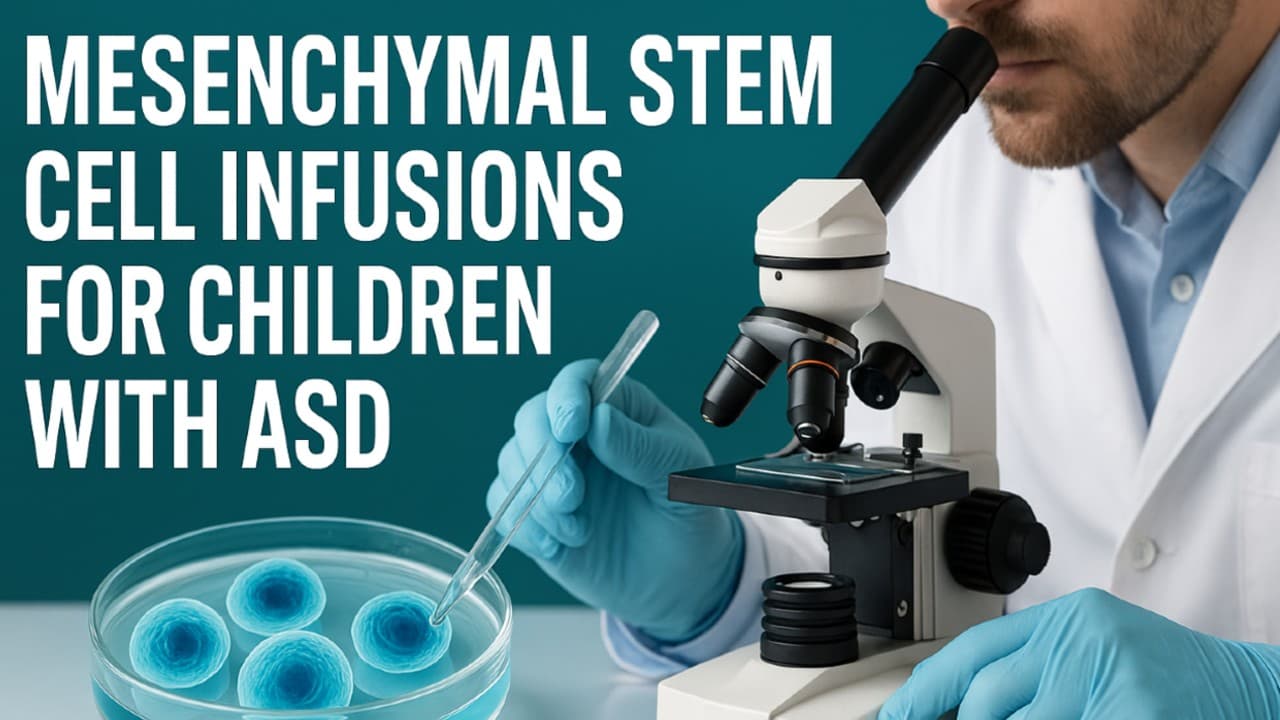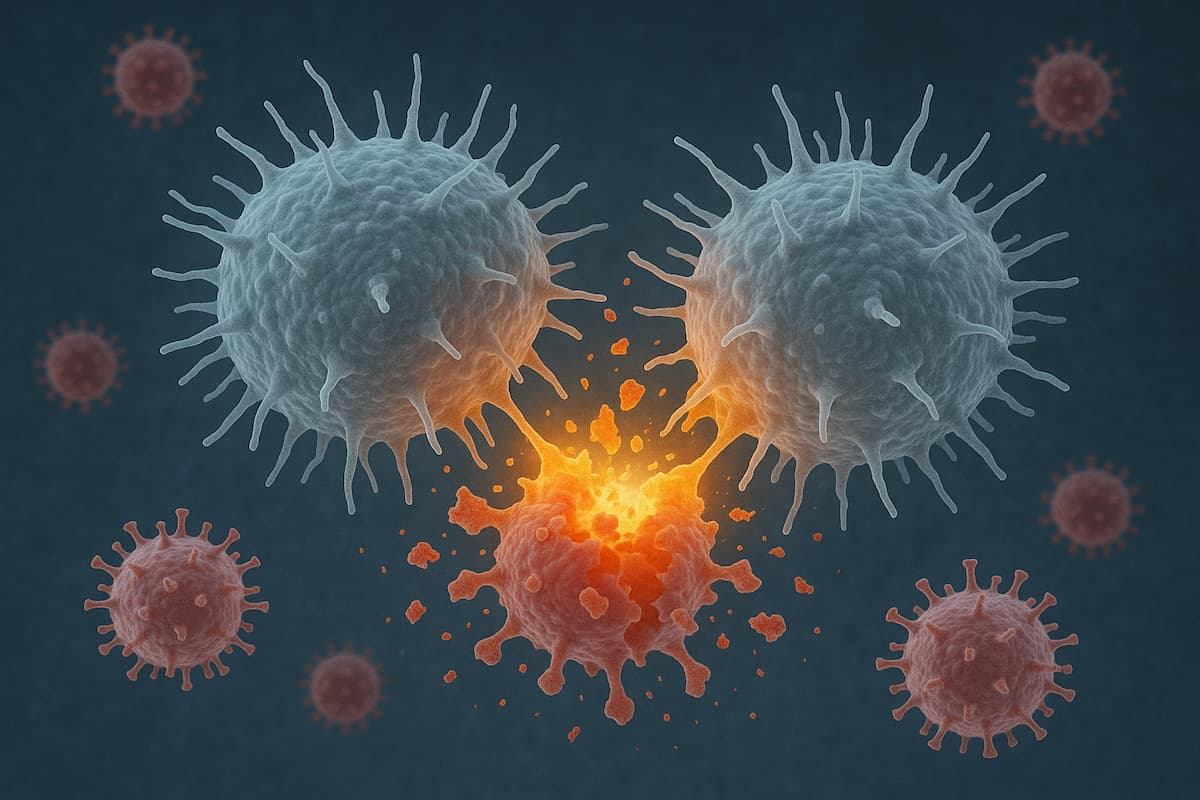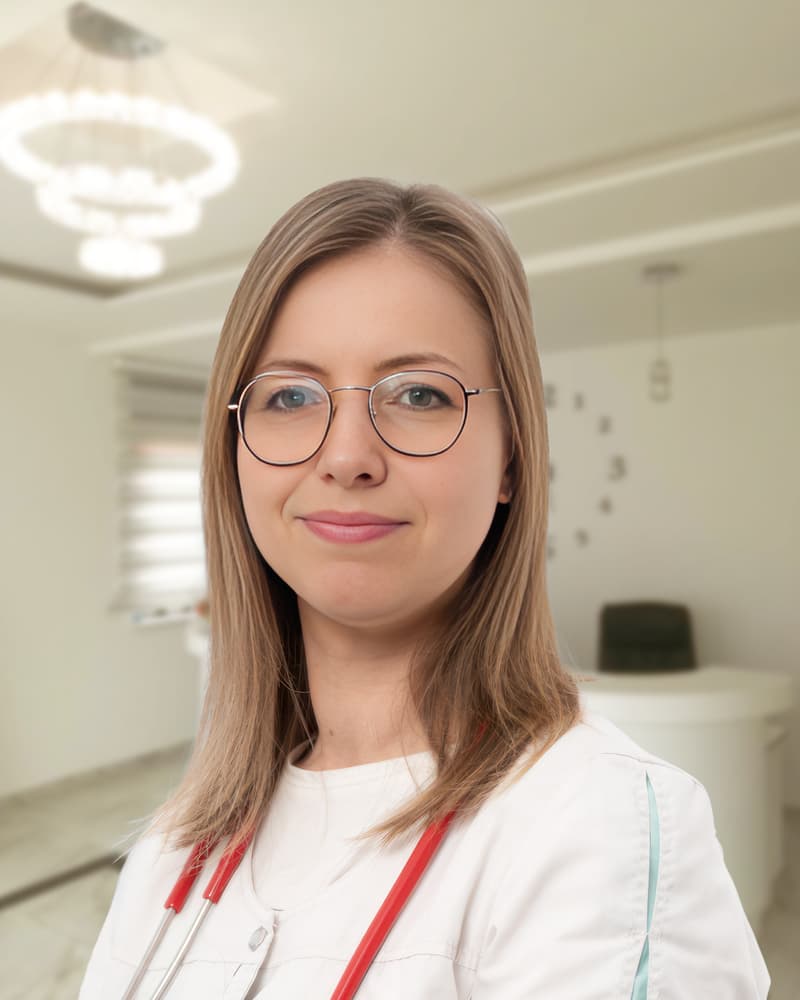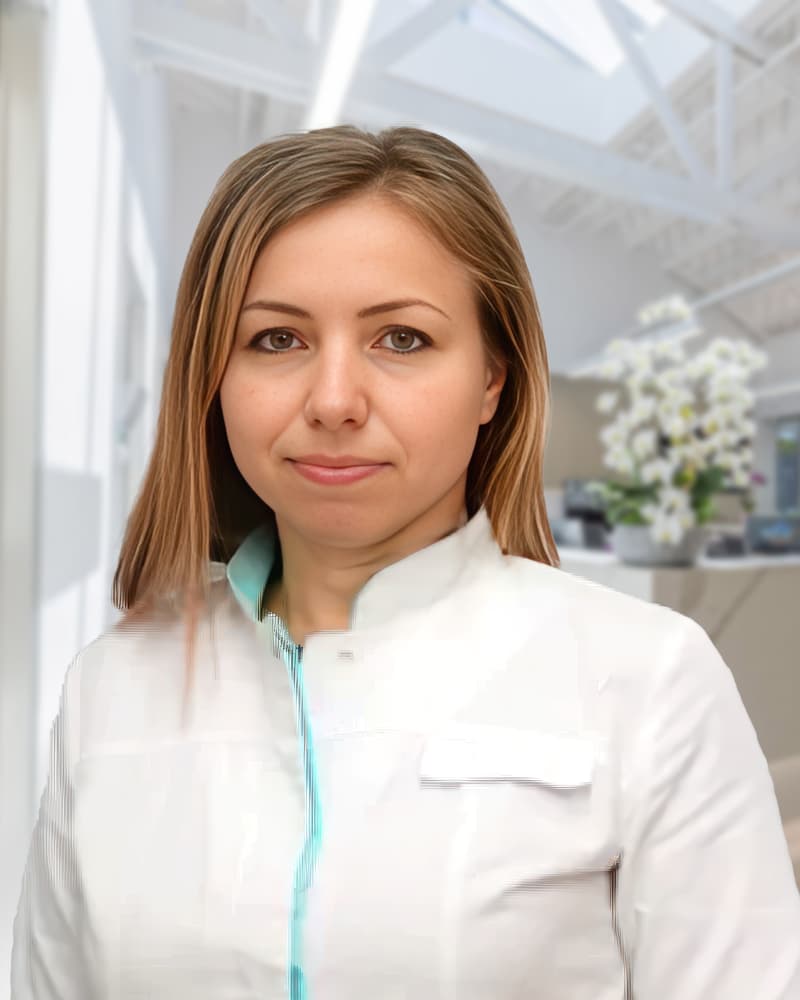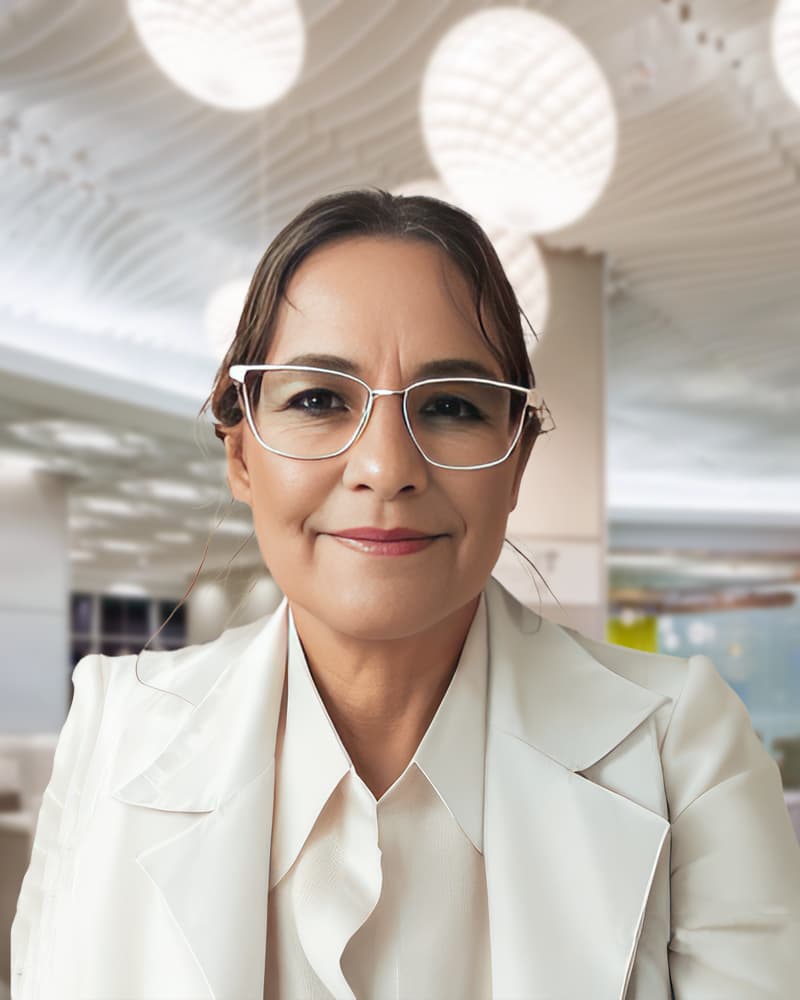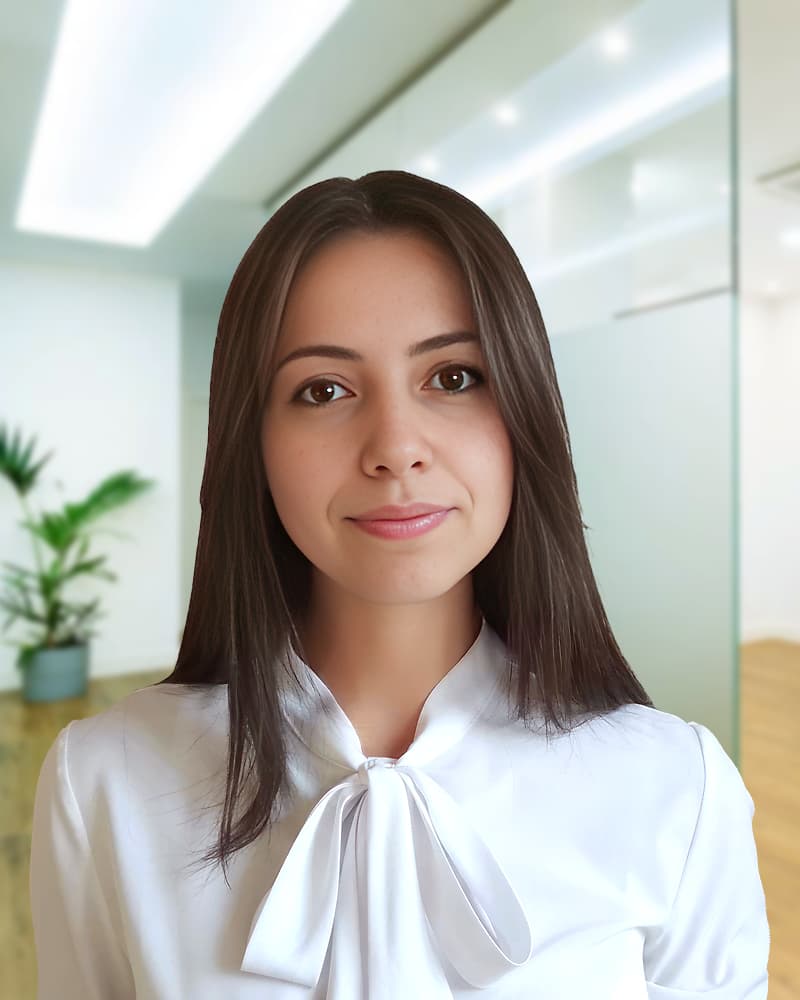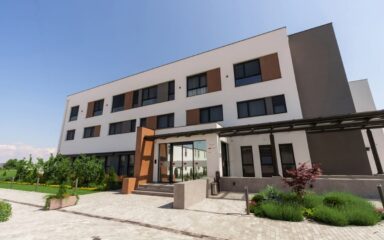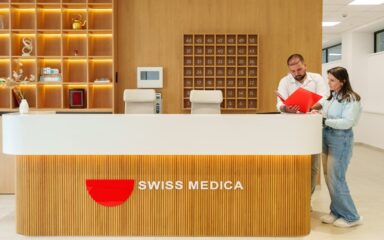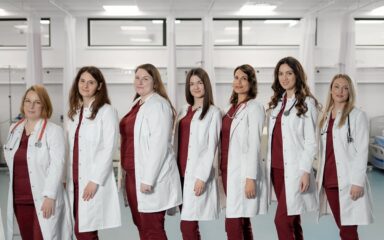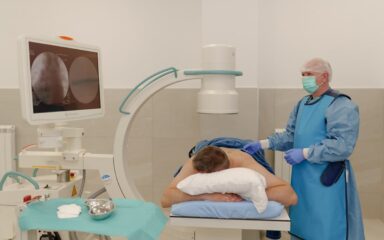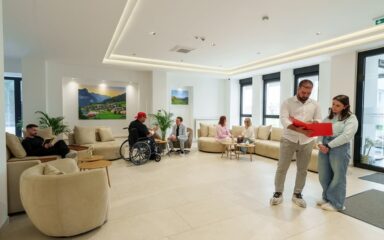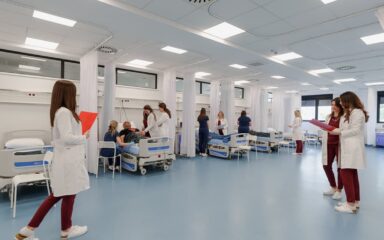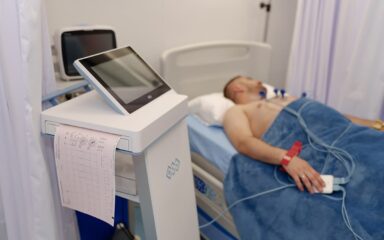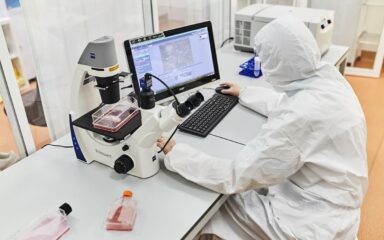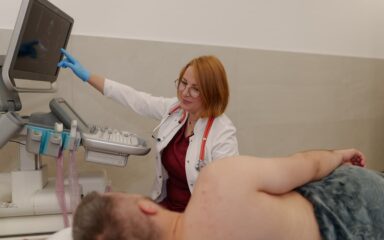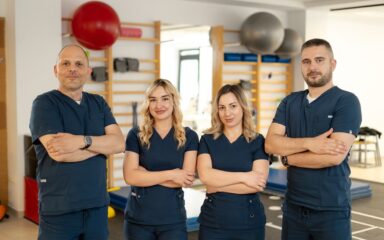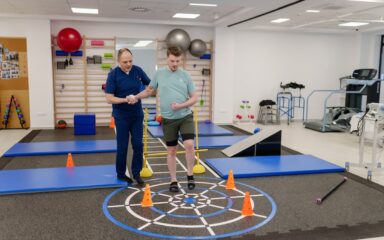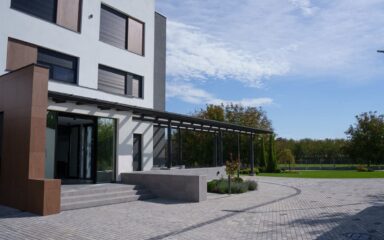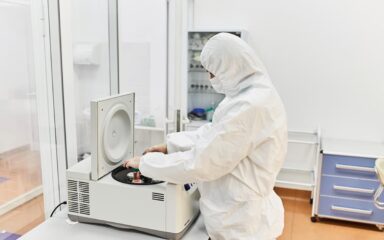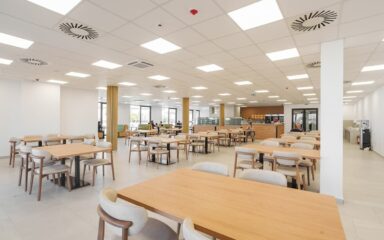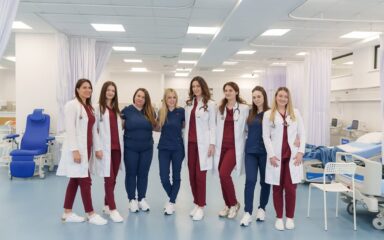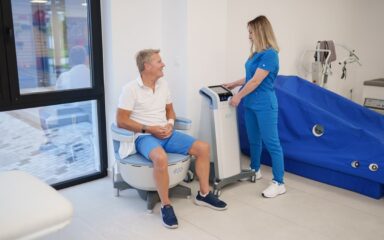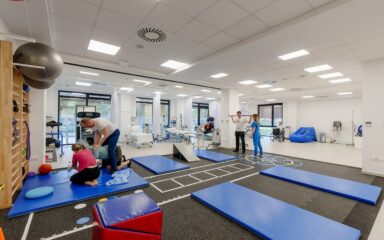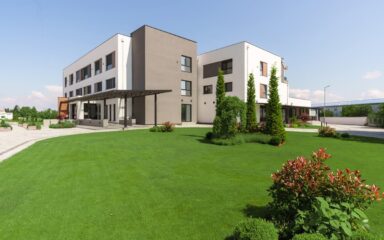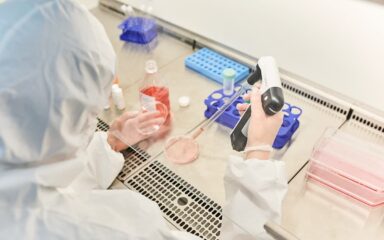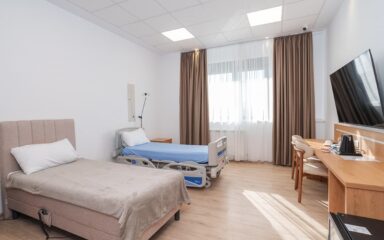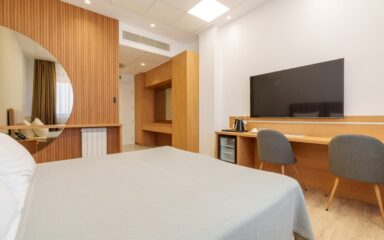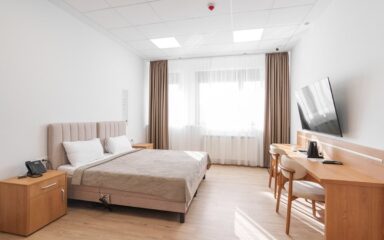Stem cell treatment and innovative therapies at Swiss Medica Clinic
- 2011 Year the clinic was opened
- 10 000 + Treated patients


Get a free online consultation with a medical adviser
Fill out the form to discuss the disease and treatment options with an expert! You’ll be contacted by a medical adviser who will collect information for the doctor and answer your basic questions.
Based on your medical reports, the doctors will assess whether you’re a candidate for the therapy. They will consider:
- Whether stem cell therapy will be effective in your specific case?
- What the treatment involves?
- How much does it cost?
Diseases

Neurological Conditions

Respiratory Diseases
- Chronic Obstructive Pulmonary Disease (COPD)
- Bronchial Asthma
- Pulmonary Fibrosis
- Allergies / Sinusitis

Musculoskeletal Disorders

Reproductive System Diseases
- Peyronie’s Disease
- Male / Female Infertility
- Erectile Dysfunction
- Recto-vaginal Fistula

Abdominal Organ Diseases

Anti-Aging and Wellbeing
Welcoming You: Our New-Patient Assistance Team
Photo of the clinics
Do you want to know more about stem cell treatment?
Ataxia is an autosomal recessive neurodegenerative disease that progresses over…
- 12 Jul 2024
- 5 min read
Autism is a neurodevelopmental condition affecting millions of children and…
- 26 Apr 2024
- 6 min read
The incidence of autism spectrum disorder (ASD) is rising across…
- 26 Apr 2024
- 8 min read
Parkinson’s disease ranks as the second most widespread neurodegenerative ailment….
- 26 Apr 2024
- 6 min read
600,000 of the approximately 800,000 Americans who have strokes each…
- 26 Apr 2024
- 12 min read
Swiss Medica Clinics
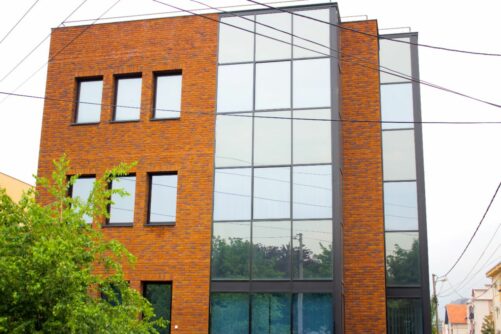
In Belgrade, Serbia, there is a branch of the Swiss…
Ugrinovacki put 16a, Belgrade, Serbia, 11283
+41 22 508 71 72 Read More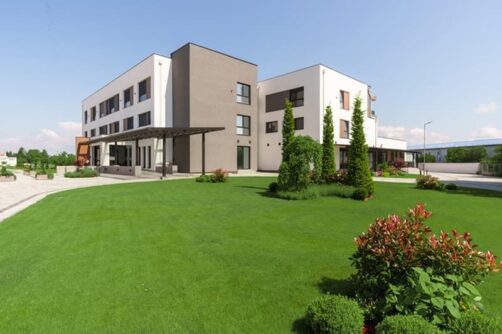
New State-of-the-Art Hospital in Belgrade In 2024, a new hospital…
Slovačka 90, Belgrade, Serbia, 11271
+38 1114 220 667 Read More
Revita Clinic – Anti-Aging and Wellness in Slovenia Revita Clinic…
Zdraviliški trg 3, Rogaška Slatina, 3250 Slovenia
+41 22 508 71 72 Read MoreSwiss Medica Offices
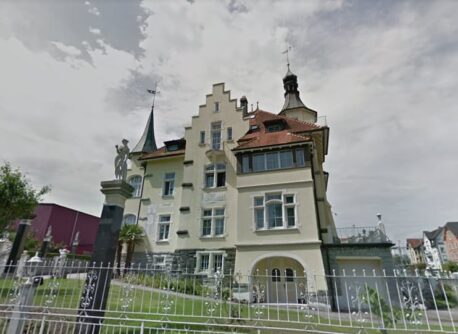
Swiss Medica was founded in St. Gallen, Switzerland, in 2011,…
St. Gallerstrasse, 23/25, Goldach, St. Gallen, Switzerland, 9403
+41 22 508 71 72 Read MoreMedia About Us
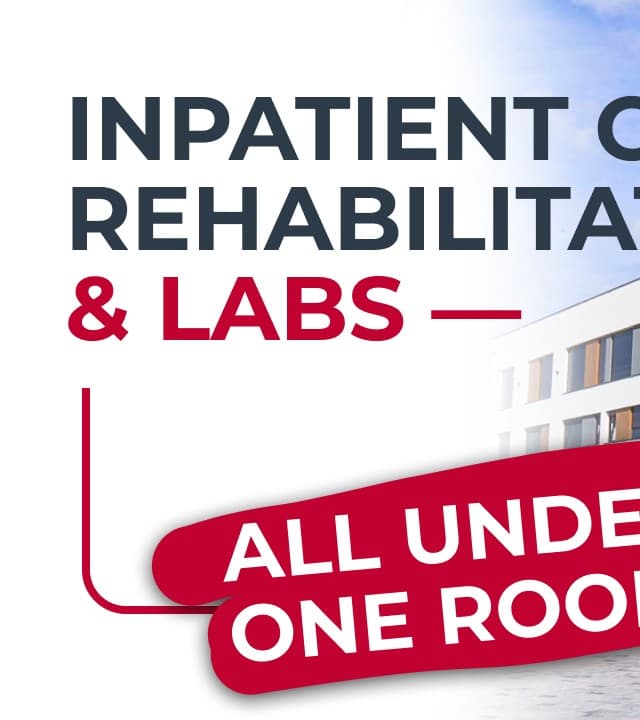
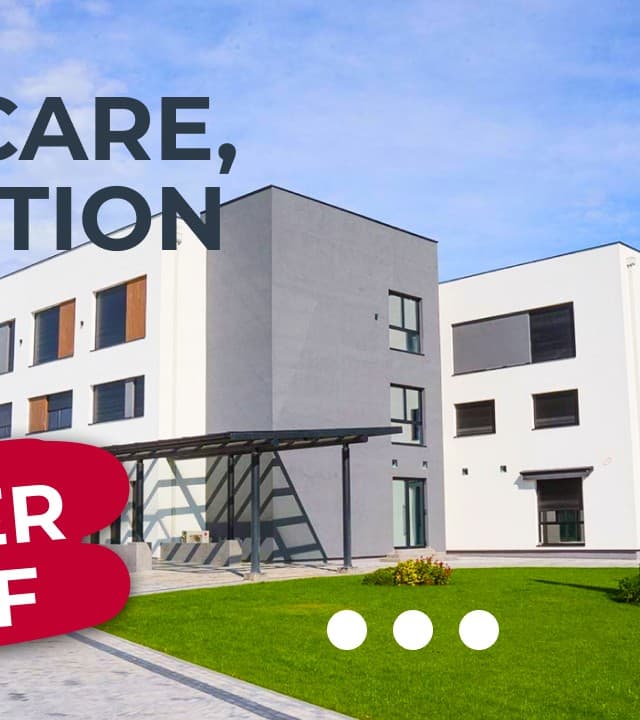 Swiss Medica Unveils Belgrade Hospital | TheStreet
Swiss Medica Unveils Belgrade Hospital | TheStreet

 Can Stem Cell Therapy Slow Aging and Fight Chronic Diseases? | Featured on MSN
Can Stem Cell Therapy Slow Aging and Fight Chronic Diseases? | Featured on MSN
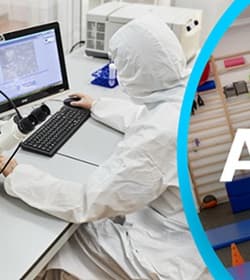
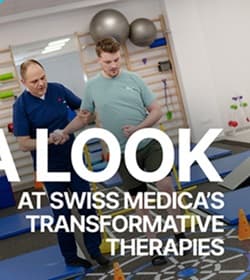 What Happens Inside a Stem Cell Clinic? | Featured on USA TODAY
What Happens Inside a Stem Cell Clinic? | Featured on USA TODAY

 MS nurse diagnosed with the condition himself set for pioneering treatment
MS nurse diagnosed with the condition himself set for pioneering treatment

 'Given me my life back': A Whitchurch man on his stem-cell treatment in Moscow
'Given me my life back': A Whitchurch man on his stem-cell treatment in Moscow

 Everyone with a Chronic Illness should know about this Potentially Game-changing Alternative Therapy. {Partner}
Everyone with a Chronic Illness should know about this Potentially Game-changing Alternative Therapy. {Partner}

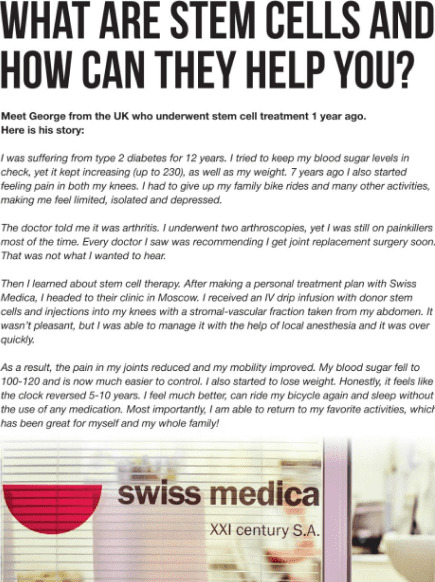 What are stem cells and how can they help you?
What are stem cells and how can they help you?
Frequently Asked Questions
What Is a Stem Cell Clinic, and How Does It Work?
A stem cell clinic is a private medical facility that provides innovative treatments that rely on the regenerative capability of the stem cells.
These treatments at the stem cell hospital may include regenerative therapies aimed at
- addressing joint, muscle, or neurological issues;
- promoting tissue repair;
- improving skin health;
- reducing wrinkles.
Stem cell clinics usually offer personalized approaches, tailoring quantity and applications of stem cells to each patient's needs. The treatment process begins with a thorough patient evaluation. It is followed by the collection, processing, and administration of stem cells.
It is a common practice in reputable stem cell clinics to offer post-treatment follow-up care. At Swiss Medica, for example, it may include monitoring for any adverse effects, providing guidance on recovery, and offering supplementary treatments such as exosomes, IMR (immune modulation therapy), and other complementary therapies to enhance healing and optimize results.
How Is a Stem Cell Clinic Different From a Standard Medical Facility?
A stem cell clinic specializes in advanced regenerative treatments using stem cells to promote regeneration and rejuvenation at the cellular level. Here is the difference it presents from a general medical facility:
- Stem cell clinic takes a holistic approach, addressing not only the immediate condition, but also the overall well-being of each patient through personalized care, complementary therapies, and ongoing support.
- The stem cell clinics employ a staff of experienced specialists that perform harvesting, processing, and administering stem cells in a safe and efficient manner.
- Many stem cell therapy centers have their own laboratories for cell processing and quality control to maintain safety and efficiency standards to the highest order.
- They can give personalized therapies to treat conditions, regenerate damaged tissues, or apply anti-aging methods.
Who Benefits from Stem Cell Clinic Visits?
Stem cell therapy clinics cater to a wide range of patients seeking innovative solutions for medical and aesthetic conditions, including:
- Developmental disorders: Stem cell therapy may help individuals with autism spectrum disorder or cerebral palsy by promoting neural regeneration and improving brain function.
- Chronic pain patients: Individuals with arthritis, tendonitis, or musculoskeletal conditions may experience pain relief and improved mobility through stem cell therapy.
- Athletes and active individuals: Regenerative treatments at the stem cell hospital can accelerate recovery from injuries and enhance performance by promoting natural healing processes.
- Neurodegenerative disease patients: Patients with Parkinson's or multiple sclerosis might also find a mode of treatment via stem cell therapy.
- Cardiovascular patients: Applications of this therapy have been instituted in cases of diseased heart tissue, including heart disease.
- Patients with autoimmune disorders: Individuals suffering from lupus, rheumatoid arthritis, and other autoimmune disorders may benefit from this new line of treatment for management.
- Cosmetic patients: Through anti-aging therapies, treatments at stem cell centers enhance collagen production and skin rejuvenation for a more youthful appearance.
- Cases of severe injury: Those recovering from traumatic injuries may use stem cell therapy at the center for stem cell and regenerative medicine to support tissue repair and restore functionality.
What Conditions Are Commonly Treated at Stem Cell Clinics?
Advanced therapies offered by stem cell clinics can often significantly improve symptoms, enhance quality of life, and accelerate the healing process for many medical and cosmetic conditions.
- Pediatric neurology: autism, cerebral palsy, developmental delay.
- Neurological conditions: multiple sclerosis, amyotrophic lateral sclerosis (ALS), motor neurone disease (MND), Parkinson's disease, ataxia, Alzheimer's disease, dementia, stroke, spinal cord injuries, and brain injuries.
- Diseases of respiratory system: chronic obstructive pulmonary disease (COPD), bronchial asthma, pulmonary fibrosis, allergies, sinusitis.
- Musculoskeletal disorders: arthritis, arthrosis, osteochondrosis, Duchenne muscular dystrophy, chronic back pain, peripheral neuropathy.
- Multisystem diseases: MSA, chronic fatigue syndrome, Lyme disease, lupus.
- Endocrine diseases: type 2 diabetes, metabolic syndrome, Hashimoto's disease.
- Diseases of the reproductive system: Peyronie's disease, male and female infertility, erectile dysfunction, recto-vaginal fistula.
- Cardiovascular diseases: arterial hypertension, cerebral small vessel disease, heart attack.
- Sensory disorders: tinnitus, deafness, glaucoma, retinitis, retinopathy, optic nerve degradation.
- Abdominal organ diseases: Crohn's disease, liver fibrosis, cirrhosis, chronic pancreatitis, chronic kidney failure (CKF).
- Anti-aging and wellbeing: burns, scars, skin pigmentation, wrinkles, psoriasis, brain productivity, prevention of joint pain, heart protection, blood vessels purification metabolic restoration, reproductive life extension, cancer rehabilitation, cancer prevention.
- Sports injuries.
How Safe Are the Stem Cell Treatments Offered by Clinics?
Multiple studies prove that stem cell treatments are safe. However, safety and efficacy depend on a number of factors:
- Minimize risks by finding successful experiences of stem cell therapy clinics and medical professionals who are experienced and qualified.
- The procedures should be done in a sterile, regulated stem cell transplant center to minimize risks of infection.
- A complete medical assessment at the center for stem cell and regenerative medicine prior to undergoing treatment helps determine whether one is a candidate.
- Beware of stem cell treatment centers that do not give sufficient details about risks and benefits or promise exaggerated outcomes.
What Kind of Stem Cells Are Used in Stem Cell Clinics?
Being among the next generation stem cell clinics, Swiss Medica exclusively uses adult multipotent mesenchymal stem cells (MSCs).
- Donor stem cells from placental tissue or umbilical cord tissue.
- Patient’s own cells, extracted from body fat, bone marrow, gingiva, and other tissues.
- Mature specific cells that involve the cells such as macrophages, regulatory T lymphocytes or Tregs, fibroblasts, and other cell types. Such cells take part in processes of tissue repair and immune response modulation.
The reason why MSCs are so highly valued by stem cell therapy centers is because of their regenerative potential, immune-modulating capabilities, and anti-inflammatory effects. Our team prioritizes the use of MSCs due to their well-established safety profile and versatility in treating a wide range of conditions. The harvesting process is minimally invasive and is performed under local or general anesthesia to comfort and ensure safety for the patient.
How Do Stem Cell Clinics Retrieve and Use Stem Cells for the Treatments?
Swiss Medica ensures safety and quality at every level of the collection and application of stem cells.
Donor stem cells
At our stem cell therapy clinic, we use tissues from placenta and umblical cord from healthy births. We have access to the pregnant donor's past medical history and test results in order to ensure cells without chronic diseases or complications.
Patient-derived stem cells
These include MSCs from body fat, bone marrow, gingiva, and other tissues. Physicians carry out procedures under local or general anesthesia to make sure patients are comfortable. Cells are processed in our on-site laboratory with great care, and viability and purity tests are done to guarantee safe and efficient dosages.
Once the stem cell products are ready, the doctors administer them by the following methods, depending on the treatment program:
- Intravenous infusion;
- Intrathecal, intradermal, intramuscular, intra-articular, paravertebral, retrobulbar, parameatal, penile injections;
- Skin applications masks;
- Eye and nasal drops;
- Nasal spray;
- Inhalation;
- Rectal route;
- And many more
How Long Does One Treatment of Stem Cells Take?
Doctors at Swiss Medica create an individualized treatment protocol based on initial consultation and physical examination as well as the stem cell therapy with supplementary treatments and supportive care. They will explain in detail the whole process to you during initial consultation: the duration of the treatment, auxiliary therapies, and follow-up care.
On average, the treatment in our stem cell treatment centers lasts:
- 3 to 9 days for autistic patients,
- 5 to 9 days in other conditions.
Some of these cases may require up to 5 weeks of home supportive care with exosomes and other non-cell products. Follow-ups then continue to monitor the progress and possibly adjust the treatment according to their development.
What Is the Recovery Process After Stem Cell Treatment?
Recovery time may vary depending on the type of transplant, but it usually takes just a few days, provided appropriate follow-up care at stem cell treatment centers.
Our doctors often recommend follow-up visits 3–6 months at our stem cell therapy hospital and clinic post-procedure to assess the progress. Treatment may be repeated as required to enhance and prolong results. Although it may take a few weeks or even months for the stem cells to get fully activated, you may notice early gains, such as reduced pain, better joint mobility, increased energy levels, or improved test results.
Usually stem cells are active for 3–6 months, but the benefits they initiate often last longer, improving symptoms and overall health.
Do Stem Cell Treatments Have Side Effects?
After the stem cell treatment, a patient may have several minor and short-term side effects. The potential side effects the patients who receive treatment from the stem cell treatment clinic may include:
- Slight increase in body temperature;
- Fatigue and sleep disturbance;
- Localized pain, swelling, or redness at the site of administration;
- Mild headache.
The majority of side effects generally do not require prolonged treatment at the stem cell transplant center and subside within days, with over-the-counter pain relievers minimizing them.
What Do I Need to Know Before Choosing a Stem Cell Clinic?
When considering a stem cell therapy clinic, it's crucial to evaluate several factors to ensure you receive safe and effective treatment. Here are the key points to consider:
- Ensure the stem cell center has a team of qualified healthcare professionals with extensive experience in stem cell therapy.
- Make sure that the stem cell treatment clinic adheres to the safety standards and regulatory guidelines by health authorities.
- Inquire about the success rates and results of patients who have undergone the procedures at the stem cell center.
- Understand overall costs of the consultations, treatments, and follow-up care.
- Ask about follow-up care processes for stem cell treatment centers that monitor progress and manage side effects if any.
Are There Other Options Besides Stem Cell Treatment?
Stem cell therapy stands in a league of its own—a unique, innovative solution with no direct alternatives. However, there are complementary treatments that can enhance its effectiveness and help you achieve even better results. As one of the next generation stem cell clinics, Swiss Medica uses other innovative therapies to boost the effect of stem cells and complement the main treatment:
- Exosome therapy based on the administration of exosomes derived from stem cells or other cell types to help in healing and tissue regeneration without necessarily administering live cells and thus is much safer.
- PRP: Platelet-rich plasma is concentrated platelets taken from the patient's own blood to stimulate injury and skin rejuvenation using growth factors.
- Intracellular Metabolism Recovery (IMR): IMR treatment treats a patient's condition through the administration of a unique combination of nutrients made up of essential vitamins, minerals, amino acids, antioxidants, and trace elements.
- And many other therapies
Is stem cell treatment effective?
Arrange a FREE online consultation with a Swiss Medica medical advisor today & get your expected results based on your diagnosis and medical reports. Fill out the contact form and speak with the care coordinators today.
You’ll be contacted by a medical adviser who will collect information for the doctor and answer your basic questions:
- How do stem cells work?
- How effective is it for the specific disease?
- Treatment results of the patients

